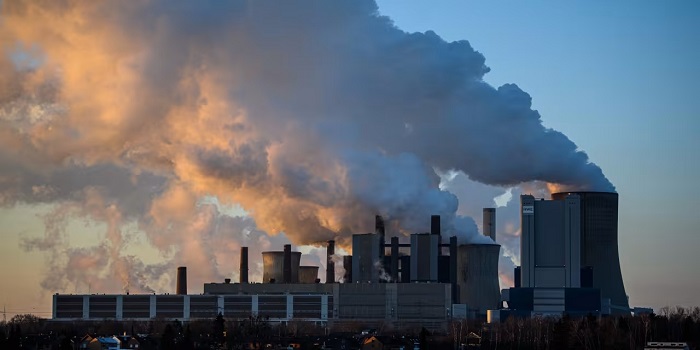Stakeholders in the Niger Delta have called for urgent policies and framework to check carbon offsetting in the region.
The call is contained in a communique issued at the end of the Niger Delta Regional Multi-Stakeholders Dialogue on Carbon Offset on Tuesday, July 29, 2025, in Asaba, Delta State.

According to them, there is a need for an urgent action to be taken to address the challenges facing the region.
The dialogue brought together representatives from government agencies, civil society organisations (CSOs), traditional leaders, private sector actors, academia, development partners, and community-based groups.
The communique identified several key issues that needed to be addressed in order to promote carbon offsetting initiatives in the region.
According to them, the issues include absence of policies and frameworks specifically designed to promote carbon offsetting initiatives in the region.
The communique also identified lack of awareness at the grassroots level regarding the concept, benefits, and relevance of carbon offsetting to local communities and the environment as well as a critical gap in political will.
The communique said that this had continued to hinder development and implementation of initiatives aimed at promoting carbon offsetting in the region.
The stakeholders highlighted several recommendations to address these challenges.
According to them, the enactment of regional laws and policies will help address carbon emissions and promote effective carbon offsetting strategies in the Niger Delta.
The stakeholders also recommended that the inclusion of youths, women, and persons with disabilities must be actively included in community-level discussions and decision-making processes related to carbon emissions and environmental governance.
They also urged that carbon emissions and environmental sustainability should be integrated into school curricula at all levels to foster early awareness and responsibility.
The stakeholders pledged to work to build strategic synergies with government at all levels to secure the necessary political will for the implementation of carbon offset initiatives.
The stakeholders reiterated their commitment to working together to advance the outcomes of the dialogue.
They pledged to collaborate with government agencies, CSOs, and other stakeholders to promote carbon offsetting and environmental sustainability in the region.
They also pledged to improve synergy in support of relevant government agencies, CSOs, and departments responsible for ensuring enforcement of carbon offsetting policies and initiatives.
Some of the stakeholders who spoke to NAN emphasised the need for urgent action to be taken to address the situation.
Prof. Festus Mbalisj of the Department of Adult and Non-Formal Education, University of Port Harcourt, said the local solution climate resilience in the Niger Delta region was agro-ecology.
Mbalisi also stressed the need for the Federal Government to be serious with the enforcement of the dateline for gas flaring.
According to him, government has been shifting deadlines since 1984 and now deadline has been shifted to 2030.
”Though there are sanctions for defaulters but it is as good as there is no fine.
”The fine is encouraging the multi-national companies to flare more gas, but when there is stringent fine the oil companies will not prefer to pay.
”They will now do the exploitation in line with global best practices with technology that will not flare,” he said.
He also stressed the need to hold oil companies accountable to clean up the Niger Delta region.
The National Conflict and Policy Analyst for Search for Common Ground, Mr. Andy Nkemneme, envisioned a future where the Niger Delta region would be peaceful, developed, and environmentally sustainable.
He said that the region had long been plagued by violence and conflict, hindering its development and affecting the lives of its people.
”Search for Common Ground, funded by the European Union, has been implementing a projects aimed at preventing violence and conflict in the region.
”As part of this project, a stakeholder dialogue was convened to discuss the topic of carbon offsetting in the Niger Delta.
“The event was designed to bring together stakeholders from various sectors to discuss the findings of research on carbon offsetting in the region,” he said.
Nkemneme said the research highlighted the potential for carbon offsetting in the region , particularly in the area of gas flaring.
”The region has significant opportunities for offsetting gas, which could be sold in the market to generate revenue for environmental development.
“However, the research also emphasised the need for sustainable practices, such as reforestation and the use of renewable energy sources to protect the environment.”
He said that by working together, stakeholders could identify solutions to the region’s challenges and create a better future for its people.
The stakeholders meeting was organisised by an international non-governmental organisation (NGO), Search for Common Ground (SFCG), and its consortium partners.
The partners are Democracy Network (SDN), and Foundation for Partnership Initiative in the Niger Delta (PIND).
By Mercy Neme
